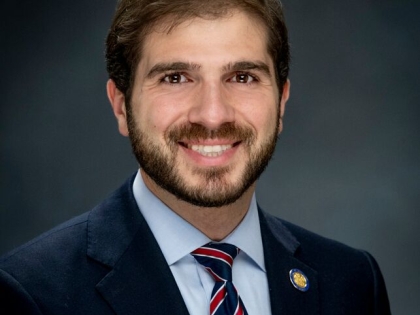
State Sen. Gounardes wants city to detail property tax increases, overhaul budget process
ALBANY — A Brooklyn state senator wants to shine a light on the city’s opaque property tax system and overhaul the annual budget process.
While the coronavirus pandemic has stalled long talked about efforts to revamp the city’s complex and uneven assessment process, state Sen. Andrew Gounardes (D-Bay Ridge) is proposing a bill that would mandate the city report exactly how much levies increase, and by how much, for homeowners during budget negotiations.
“Property taxes have skyrocketed over the last six years,” Gounardes argued. “The burden of a rapidly-growing city budget is disproportionately felt by homeowners in non-gentrified outer-borough neighborhoods across the city, yet the city keeps saying that they are not raising property taxes, which flies in the face of the lived experiences of homeowners who see their property tax bills grow significantly year after year after year.”
Fiscal watchdogs, good government groups and homeowners have long argued that the city’s antiquated system of calculating property taxes favors the wealthy by allowing them to pay less than working-class New Yorkers. The current system allows the city to claim tax rates remain unchanged even though payments are calculated using a complicated method that includes a property’s assessed and market values.
Gounardes’ “Truth in Budgeting” bill would mandate that for any increase in the property tax levy above 2%, the city must provide full disclosure on the difference between the proposed annual budget and one that achieves zero growth of the levy by offsetting rising property values with a reduction in the tax rate.
The disclosure must also be followed by a series of public hearings throughout the city before the City Council adopts a final budget.
“The Truth-in-Budgeting Act will shine some much-needed light to make our convoluted property tax system more open, honest, and transparent to everyone,” Gounardes told the Daily News. “This is just the first step towards long-term property tax reform that will ensure that the wealthiest owners in New York City — and not everyday New Yorkers — pay their fair share to support vital city services.”
Similar laws are already on the books in several other states including Maryland, Tennessee, Texas, Utah and Virginia, the lawmaker noted.
A spokeswoman for City Hall said Mayor de Blasio will take a look at the proposal.
”The mayor is committed to reforming the property tax system, which is why he put together the Advisory Commission on Property Tax Reform last year and has welcomed their preliminary recommendations,” Laura Feyer. “We are reviewing the legislation.”
Redoing the city’s convoluted current system has been discussed for years and recent events just prior to the coronavirus outbreak gave some hope that change would soon be on the way.
In January, an advisory committee established by de Blasio and the City Council recommended an overhaul that would see most homes, including co-ops and condominiums, taxed on their full market value assessment. De Blasio backs the change and has vowed to get it done before the end of his term in office next year.
A New York appeals court dismissed a lawsuit alleging that the city’s current property tax system discriminates against low-income and minority homeowners back in March, while still labeling the setup unfair and noting that the city remains “deeply segregated.”
